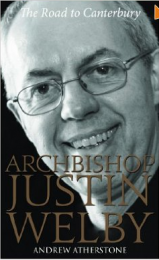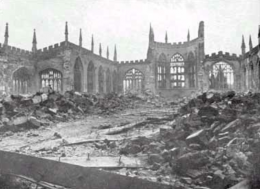 Diverse experience
Diverse experience
My holiday reading included ‘The Road to Canterbury’, a biography of the recently appointed Archbishop, Justin Welby. This very readable and fast-moving book contains much for our encouragement as we read of a man of very diverse experience who is deeply committed to mission and the advance of the gospel in the power of the Spirit. His experience helps him empathise with people from many different cultures and who have experienced significant challenges in life.
Born into a privileged background he had a somewhat dysfunctional up-bringing between separated parents and under the care of a wandering father. Educated at Eton and Cambridge, where he became a Christian, he had many contemporaries as close friends some of whom are now well-known church leaders, such as the two HTB-based Nickys, Gumbell and Lee, and leading financier in the City of London, Ken Costa.
For several years he was a successful international financier in the oil business making decisions that brought significant financial benefit to the company he worked for, Elf Aquitaine. He often travelled overseas, particularly to Nigeria, where he courageously faced danger on several occasions.
In his personal life he and his wife Caroline suffered the tragedy of their 7-month old daughter, Johanna, being killed in a car crash.
‘Full-time’ ministry
Out of the blue God called him to become a minister in the Church of England, a calling he embraced with great reluctance, telling his interviewing panel why he did not want to become an ordained minister, a view he also reiterated when later interviewed to become a bishop!
Words like Risk, Radical and Reconciliation occur frequently in this biography.  Indeed, after gaining valuable experience serving among the poor and disadvantaged as rector of a parish, the whole area of reconciliation became a major part of Justin Welby’s work when he was invited to join the staff of Coventry Cathedral.This church, whose building suffered devastation during the Second World War, had subsequently sought to be an international peace-maker with such renowned people as Andrew White being on its staff. (Andrew has since relocated to Baghdad where he leads the Foundation for Relief and Reconciliation in the Middle East.)
Indeed, after gaining valuable experience serving among the poor and disadvantaged as rector of a parish, the whole area of reconciliation became a major part of Justin Welby’s work when he was invited to join the staff of Coventry Cathedral.This church, whose building suffered devastation during the Second World War, had subsequently sought to be an international peace-maker with such renowned people as Andrew White being on its staff. (Andrew has since relocated to Baghdad where he leads the Foundation for Relief and Reconciliation in the Middle East.)
I found the chapter on Reconciliation particularly fascinating, starting with international reconciliation but then homing in on matters requiring reconciliation in our personal and local relationships. The ministry particularly focuses on six aspects of reconciliation, each conveniently beginning with ‘R’.
Researching: The importance of carefully examining the perspectives of both parties without being entrenched in a pre-conceived judgement.
Relating: Both parties must face up to the truth and the possibility of transformation, not only ‘victory’ (from their perspective). ‘One does not relate to people because they are good but because they are there’, just as God has chosen to relate to us.
Relieving: The alleviation of socio-economic roots of conflict.
Risking: International reconciliation is risky, even dangerous. When asked ‘Why do you meet bad people?’ Welby responded ‘It’s the bad people who are causing the trouble’.
Reconciling: The point at which justice, restitution and forgiveness first emerge.
Resourcing: How communities can address their local conflicts without assistance from outside agencies.
Moving on
From Coventry Justin Welby went, unexpectedly for only a short time, to Duishop to Durham before being called to become Archbishop of Canterbury where he faces huge challenges of international proportions within the Anglican Communion.
I strongly urge you to read this book and to learn from a man of humility and wisdom who finds himself in a place of great influence not because he has achieved the pinnacle he sought out of ambition but because God plucked him out of a very different career path for His purposes. He needs our prayers.
Footnote
In case you missed an earlier post here is an interview he gave shortly before his induction as Archbishop.
